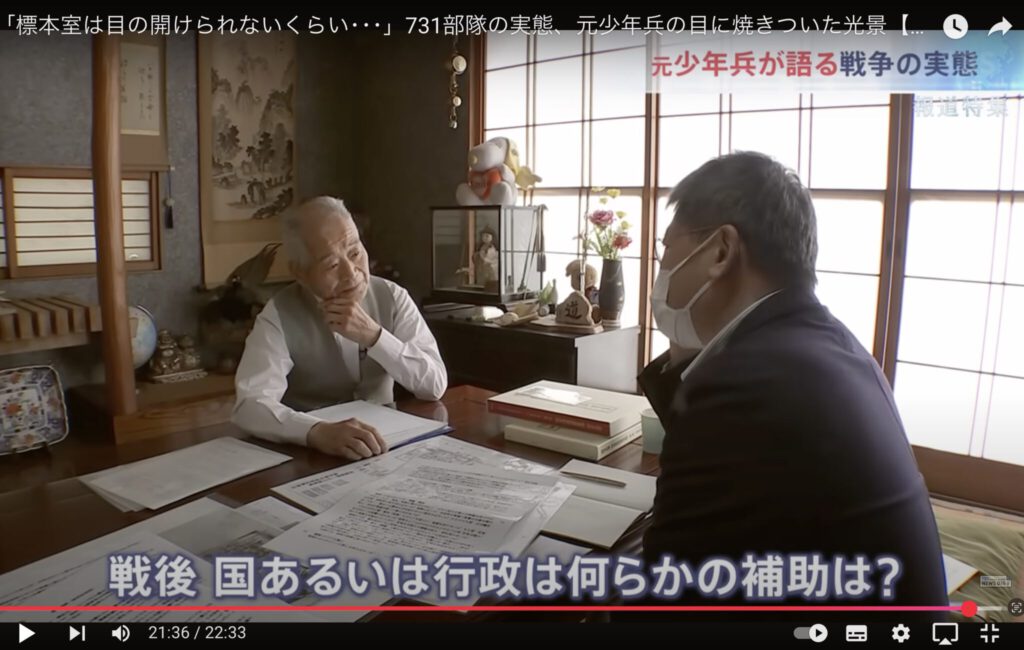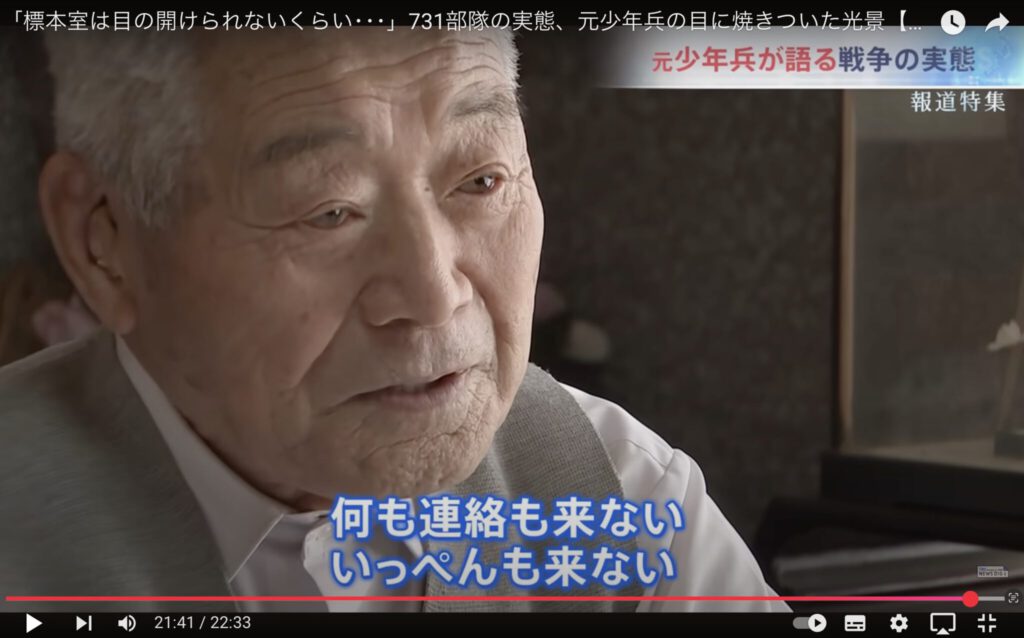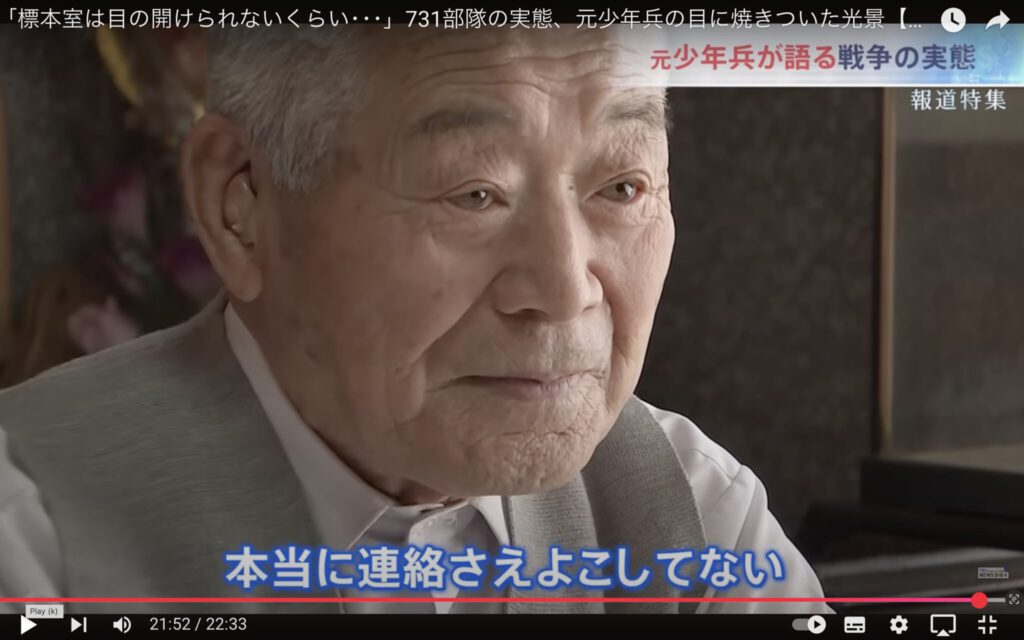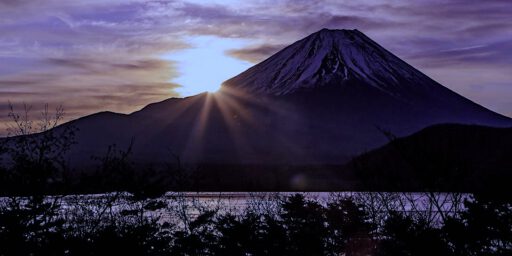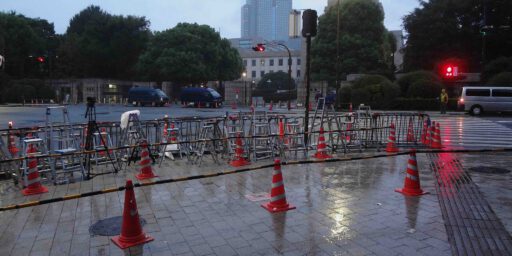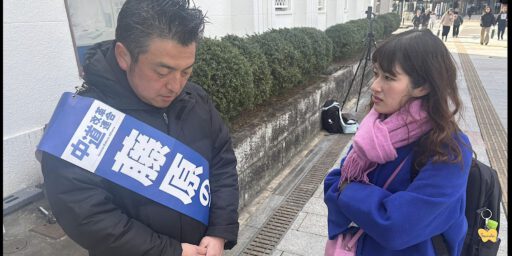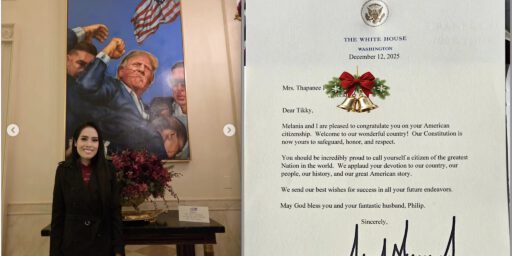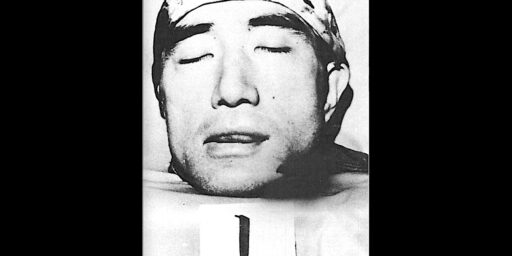なぜ、日本歴史・戦争博物館は存在しないのか? Why doesn't a Japanese History / War Museum exist?

Japan, like Germany, is a country of perpetrators. Therefore, it doesn’t want to build a History / War Museum. There are conservative circles in Japan that have, using mafia-like means, prevented this from happening, aka, secretive, but well-known, convocations of elderly Japanese men with an endogenous pathetic fallacy à la TENNO-esque.
World War II ended on May 8, 1945. The Japanese, however, continued to fight for the TENNO 天皇 (Japanischer Kaiser) until September 2, 1945.
Compare “天皇陛下 万歳! Long Live The Japanese Emperor!” from February 23, 2025:

https://art-culture.world/articles/long-live-the-japanese-emperor/
Japan did not surrender because of the A-bombs dropped on Hiroshima and Nagasaki, but because the Soviet Union abandoned the Japan-Soviet Neutrality Pact and invaded Japan on August 8, 1945.
Japan remains full of US military bases. REAL POLITIK proves that Japan is not a sovereign state, but a vassal state of the US.
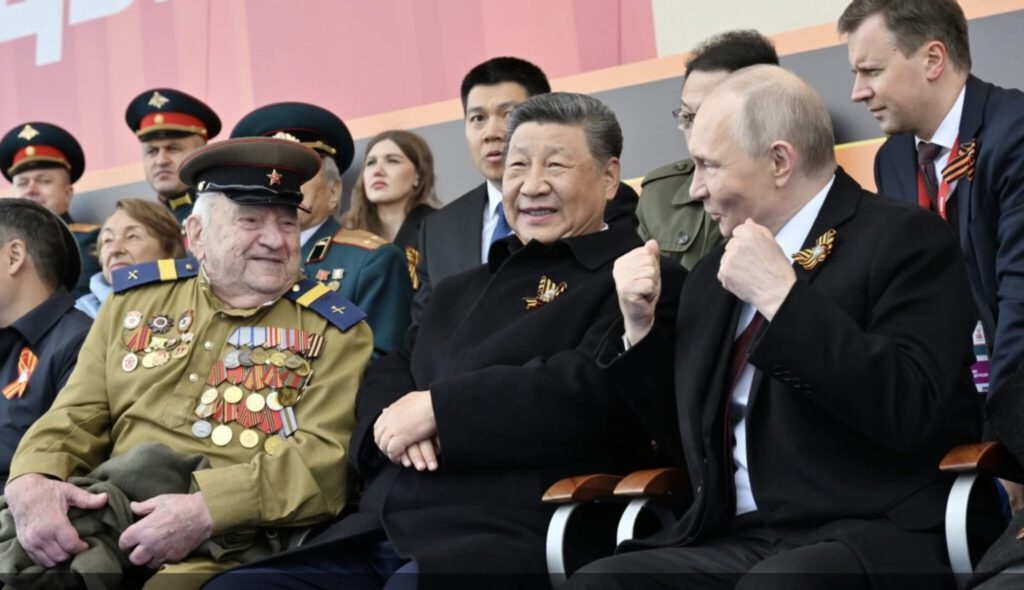
On May 8, 2025, Chinese President Xi attended the celebrations of the 80th anniversary of the end of World War II in Moscow, see photo above. No European (except extremely right-wing politicians), Japanese or American Representatives.
During his talks with Xi, Putin announced his return visit to Beijing at the end of August and the beginning of September to celebrate with China the victory over the Japanese aggressors in Asia 80 years ago, also with a military parade. “We are developing our strategic relations for the benefit of the people of both countries,” Putin declared in the Kremlin on Thursday, “but not against third parties,” he added.
Furthermore, Xi wants to secure Russia’s unconditional support, including military support, in the event of an escalating and potentially armed conflict with Taiwan. The island is considered a breakaway province by Beijing and recognized as part of Chinese territory by nearly 200 states, including Germany and the United States.
Taiwan, with a population of 23 million, is now governed by President William Lai (or Lai Ching-te), who described himself before his election as a “politician committed to Taiwan’s independence.” This would cross China’s red line. The Chinese anti-separation law would then legitimize military intervention. However, Taiwan is under the protection of the United States, ergo, like Japan, a vassal state of the US. In 1979, the United States passed the Taiwan Relations Act, which would oblige the US government to provide military assistance if Taiwan were attacked.
This means, Japan would “eventually” participate in the war against China.
Yesterday, on the 9th of May 2025, Taiwan vehemently protested, denounced Russia and China for distorting World War II history, saying Chinese communist forces made “no substantial contribution” to fighting Japan and instead took the opportunity to expand their own forces.
Taiwan has this year sought to cast the war as a lesson to China in why aggression will end in failure, reminding the world it was not the government in Beijing that won the war.
The Chinese government at the time was the Republic of China, part of the US, British and Russian-led alliance, and its forces did much of the fighting against Japan, putting on pause a bitter civil war with Mao Zedong’s Communists whose military also fought the Japanese.
The republican government then fled to Taiwan in 1949 after finally being defeated by Mao, and Republic of China remains the democratic island’s official name.
Responding to comments by Russian President Vladimir Putin to Chinese President Xi Jinping that the war was won under the leadership of China’s communist party, Taiwan’s Mainland Affairs Council said it was the Republic of China government and people who fought and ultimately won.
“The Chinese communists only took the opportunity to expand and consolidate communist forces, and made no substantial contribution to the war of resistance, let alone ‘leading’ the war of resistance,” it said.
On the 8th of May 2025, in a joint statement with China, Russia reaffirmed that Taiwan was an “inseparable part of the People’s Republic of China” – a position the government in Taipei strongly disputes.
The government in Beijing says that as it is the successor state to the Republic of China it has a legal right to claim Taiwan under the text of the 1943 Cairo Declaration and 1945 Potsdam Declaration, the island at the time being a Japanese colony.
Taiwan’s foreign ministry said those documents confirmed that it was the Republic of China which had sovereignty over Taiwan. “At the time, the People’s Republic of China did not exist at all,” it said. “Any false statements intended to distort Taiwan’s sovereign status cannot change history, nor can they shake the objective facts recognised by the international community.”
China labels Taiwan President Lai Ching-te a “separatist”. He rejects Beijing’s sovereignty claims, saying only Taiwan’s people can decide their future.
In February 2022 I wrote the following sentences:
Taiwan is lost. So will be Okinawa, too.
台湾、沖縄。これで諦めるか。
With the Russian invasion of Ukraine, we are experiencing a turn of the times.
I really doubt, if Japan will protect or help Taiwan when China invades that island.
2022 manifests macho – “POWER THROUGH FORCE”.
An anti-Feminism, anti-Woman attitude.
Russia waves the nuclear sword in confrontation with the West.
So will China, when Taiwan will be invaded one day.
It has been a long time since the threat of using nuclear weapons has been brandished so openly by a world leader, but the Russian President has just done it, warning in a speech that he has the weapons available if anyone dares to use military means to try to stop Russia’s takeover of Ukraine.
1914, 1939, 1989, 2001 – not only historians know that these dates stand for caesuras. For events that suddenly accelerated and drastically changed the course of history.
2022 will change the world order.
It seems, that the Japanese population is not yet aware of this historical situation.
A rethink is urgently needed.
https://art-culture.world/articles/taiwan-is-lost-and-next-will-be-okinawa-too/
In 2021, August 19, I wrote:
次は台湾、日本。あなたは自分の国を守れるか?あなたはしないよね。
Taiwan and Japan are the next ones. Can you defend your country? I know you won’t.
https://art-culture.world/articles/taiwan-and-japan-are-the-next-ones/
No peace in sight. Today I can proclaim, that the actual situation with the ongoing invasion by Russia, and China’s behaviour with its large-scale military drills around Taiwan, has become worse. Actual US President Trump’s chaotic behaviour, “spastic” mental state show how humanity can sink to its lowest levels. The former US President Biden defending his mental acuity and blaming American sexism for Kamala Harris’s defeat. Crazy Americans.
On May 8, I had a spontaneous exchange of views on Facebook with Klaus Honnef, a renowned German art critic and art historian. Honnef was born in 1939 in Tilsit, East Prussia (now Sovetsk, Russia), I was born in 1959 in Baden, Switzerland, with German citizenship.
Klaus Honnef
May 8 at 11:10 AM ·
Es war nie das Ziel der Alliierten in West und Ost Deutschland zu befreien. Es war ihr einziges Ziel, Nazi-Deutschland zu besiegen. Konkret: zur bedingungslosen Kapitulation zu zwingen. Gestern vor 80 Jahren kapitulierten das Regime in einer Schule zu Reims vor den Westalliierten, heute vor 80 Jahren vor den Sowjets in Karlshorst. Befreit sind die Überlebenden Häftlinge in den KZs worden, die wenigen verborgenen Juden in den deutschen Städten und Dörfern, die ebenso wenigen deutschen Widerstandskämpferinnen und Kämpfer. Die überwiegenden Zahl der Deutschen hat den Tag als Niederlage empfunden, als Befreiung allenfalls von dem „totalen Krieg“, den viele schreiend begrüßt hatten. Der Nachfolger Hitlers als Kanzler gab in einem Tagesbefehl die Devise aus, die bis in die tiefen „Sechzigern“ das kollektive Bewusstsein der Deutschen bestimmte. Die Wehrmacht habe ehrenhaft gekämpft. Und auch das erwies sich als als Lüge. Bedrückend, dass solche Lügen wieder im Kurs sind. Einer der sinnlosesten Sätze, die mir im Gymnasium vermittelt wurden, lautet: Man sollte aus der Geschichte lernen. Doch dazu müsste man sie kennen.
English translation:
It was never the goal of the Allies to liberate West and East Germany. Their sole goal was to defeat Nazi Germany. Specifically: to force unconditional surrender. 80 years ago yesterday, the regime capitulated to the Western Allies in a school in Reims, and 80 years ago today, it capitulated to the Soviets in Karlshorst. The surviving prisoners in the concentration camps were liberated, as were the few hidden Jews in German towns and villages, and the equally few German resistance fighters. The vast majority of Germans perceived the day as a defeat, at best a liberation from the “total war” that many had enthusiastically welcomed. Hitler’s successor as Chancellor issued a daily order with the motto that dominated the collective consciousness of the Germans well into the 1960s: The Wehrmacht had fought honorably. And that, too, turned out to be a lie. It’s depressing that such lies are back in vogue. One of the most senseless phrases I was taught in high school was: You should learn from history. But to do that, you have to know it.
Mario Ambrosius
Herr Honnef, in Ihrem Alter diese Sätze publik zu machen hat Gewicht.
Weil Sie, als geschätzter Intellektueller, 1. Quelle sind.
Ihre Aussagen lese ich in einem globalen Kontext, weil ich (als Deutscher mit italienischer Mutter und 40 Jahre in Japan lebend) ähnliche, von Seiten der konservativen Regierungen forcierte, Vertuschungen der wahren Geschichte des 2. Weltkrieges in Italien und Japan erlebe.
Salopp gesagt: Das “infantile, einfache Denken” in der amerikanischen als auch in der chinesischen, sowie in der russischen Bevölkerung macht eine objektive Geschichtsschreibung fast unmöglich.
Man lese die “lokal” geschriebenen Geschichtsbücher aller Länder der Welt. Oder besuche die, teilweise nicht existierenden, Museen der heimischen Geschichte. Grauenhaft.
English translation:
Mr. Honnef, at your age, making these statements public carries weight.
Because you, as a respected intellectual, are the primary source.
I read your statements in a global context because I (as a German with an Italian mother and having lived in Japan for 40 years) witnessed similar cover-ups of the true history of World War II in Italy and Japan, enforced by conservative governments.
To put it bluntly: The “infantile, simple thinking” of the American, Chinese, and Russian populations makes objective historiography almost impossible.
Read the “locally” written history books of every country in the world. Or visit the museums of local history, some of which don’t exist. Horrific.
Author
Klaus Honnef
Mario Ambrosius – ich stimme ihnen zu. Ich bin immer wieder bestürzt, wie die amerikanische Regierung bis in die höchsten Spitzen von der Geschichte und Kultur der Länder, die sie aus verschiedenen Gründen bekriegt haben oder mit denen sie verbündet waren, nicht das Geringste wussten und wissen wollten, so dass sie nach den gewonnenen Kriegen selbst die Früchte ihrer Siege völlig vertan haben. Trump ist nur einer. Der Weg zur Neuordnung Europas nach dem zweiten Weltkrieg ist ein bezeichnender Umstand, geprägt durch eine totale Unterschätzung der Bestrebungen der Sowjets. Aus der Sicht Europas, eine schmerzliche, auch komische Farce mit den Folgen, die nach wie vor evident sind.
English translation:
Mario Ambrosius – I agree with you. I am continually dismayed by how the American government, right up to its highest levels, knew absolutely nothing about the history and culture of the countries they were at war with for various reasons, or with which they were allied, so that after winning the wars, they completely squandered even the fruits of their victories. Trump is just one of them. The path to the reorganization of Europe after the Second World War is a telling circumstance, characterized by a total underestimation of the Soviets’ aspirations. From Europe’s perspective, it was a painful, even comical, farce, with consequences that are still evident today.


In this context, let me quote a few passages from German Federal President Frank-Walter Steinmeier’s speech on 8 May.
Federal President Frank-Walter Steinmeier
at the ceremony of remembrance in the German
Bundestag marking the 80th anniversary of the end of the
Second World War and the end of National Socialist
tyranny in Europe
Berlin
8 May 2025
We are all children of 8 May
quotes:
The Second World War was nothing other than a ceaseless horror.
Humiliation, persecution, torture, murder, genocide. By the end there
were more than 60 million people dead in Europe, six million Jews
murdered, millions homeless and uprooted, abandoned, broken,
wounded, starving.
…
It was Germans who unleashed this criminal war and dragged all
of Europe into the abyss. It was Germans who committed the crime
against humanity that was the Shoah. And it was Germans who were
not willing and not able to throw off the yoke of the Nazi regime
themselves.
This is what we – we Germans – remember today, 80 years later.
We know that this day profoundly shaped our country. We are all
children of 8 May!
On 8 May 1945 we were liberated. Today, 80 years later, our
profound thanks still go to the Allied soldiers and the European
resistance movements who mustered all their strength and endured
great losses in order to defeat the Nazi regime. We will not forget this!
Our thanks go to the Americans, British and French and all those who
joined them in the fight against Nazi terror.
However, we also know what the Red Army contributed, Russians,
Ukrainians, Belarusians and all those who fought in it. At least 13 million
of these soldiers and just as many civilians lost their lives. The Red Army
liberated Auschwitz.
All of this, we will not forget. But precisely for that reason, we
stand firmly against the historical lies now being told by the Kremlin.
Even if the assertion happens to be repeated tomorrow at the Victory
Day celebrations in Moscow, the war against Ukraine is in no way a
continuation of the fight against fascism. Putin’s war of aggression, his
crusade against a free, democratic country, has nothing in common with
the fight against National Socialist tyranny waged during the Second
World War. Ultimately, this historical lie is nothing other than window-
dressing for imperial delusion, severe injustice and the most heinous
crimes!
Even and especially on 8 May, it remains the case that we support
Ukraine in its fight for its freedom, its democracy, its sovereignty. If we
left Ukraine unprotected and defenceless, that would mean betraying
the lessons of 8 May!
We are today, 80 years later, also profoundly grateful for the
reconciliation, the trust, that so many countries graced us with after the
war. For the reconciliation with our neighbours Poland and France. For
the miracle of reconciliation that Jewish communities around the world
as well as the State of Israel gifted to us. We Germans cannot be grateful
enough for this gift of reconciliation!
Yet gratitude is not enough! It can never and must never leave us
indifferent when, in our country of all places, antisemitism once again
shows its face. It is ignorant of history, it is unbearable, when Jewish
people are made to no longer feel safe in our country. Unbearable not
just for Jewish people. No, unbearable for our democracy. There must
be no place for antisemitism in our society. It is our shared duty to
ensure this!
In 1945, liberation came from outside our country. It had to. Most
Germans remained loyal to the regime until the very last day. And by no
means all Germans felt gratitude for liberation; they did not even see
themselves as having been liberated.
…
Richard von Weizsäcker’s statement that “8 May was a day of
liberation”, in his historic speech on 8 May 1985, was not uncontroversial
even 40 years after the war’s end. And yet it marked a turning point in
our approach to our past.
Federal President von Weizsäcker was speaking for the Federal
Republic of Germany, but his words resonated in the German Democratic
Republic, too.
And today, another 40 years later? The Day of Liberation on 8 May
has become a core part of our collective German identity. And yet we
are not celebrating this 8 May today in a spirit of calm self-assurance.
Because we can see that freedom is not the grand finale of history.
Freedom is not guaranteed for all time.
…
That is why I speak of a double epochal shift – Russia’s war of
aggression and the US’ break with its values – that is what marks the
end of this long twentieth century.
Both fascination with the authoritarian and populist enticements
are unfortunately once again gaining ground here in Europe, too, and
doubts in democracy are being voiced aloud. We are seeing with horror
that even the world’s oldest democracy can be endangered when the
judiciary is disdained, the separation of powers is overridden and
academic freedom is attacked.
…
German Federal President Frank-Walter Steinmeier consciously refers to former Federal President, late Richard von Weizsäcker’s statement that “8 May was a day of liberation”, in his historic speech on 8 May 1985.
As a reference, for comparison, Weizsäcker’s speech had been quoted many times in Japan, as the Japanese government, Prime Ministers, until today were/are NOT able to deliver a similar speech.
My dear ART+CULTURE readers know that my relationship with friend and film author Wim Wenders is a special and profound one.
Let me attach two very unique, rare pics from 1991 about Richard von Weizsäcker and Wim Wenders.
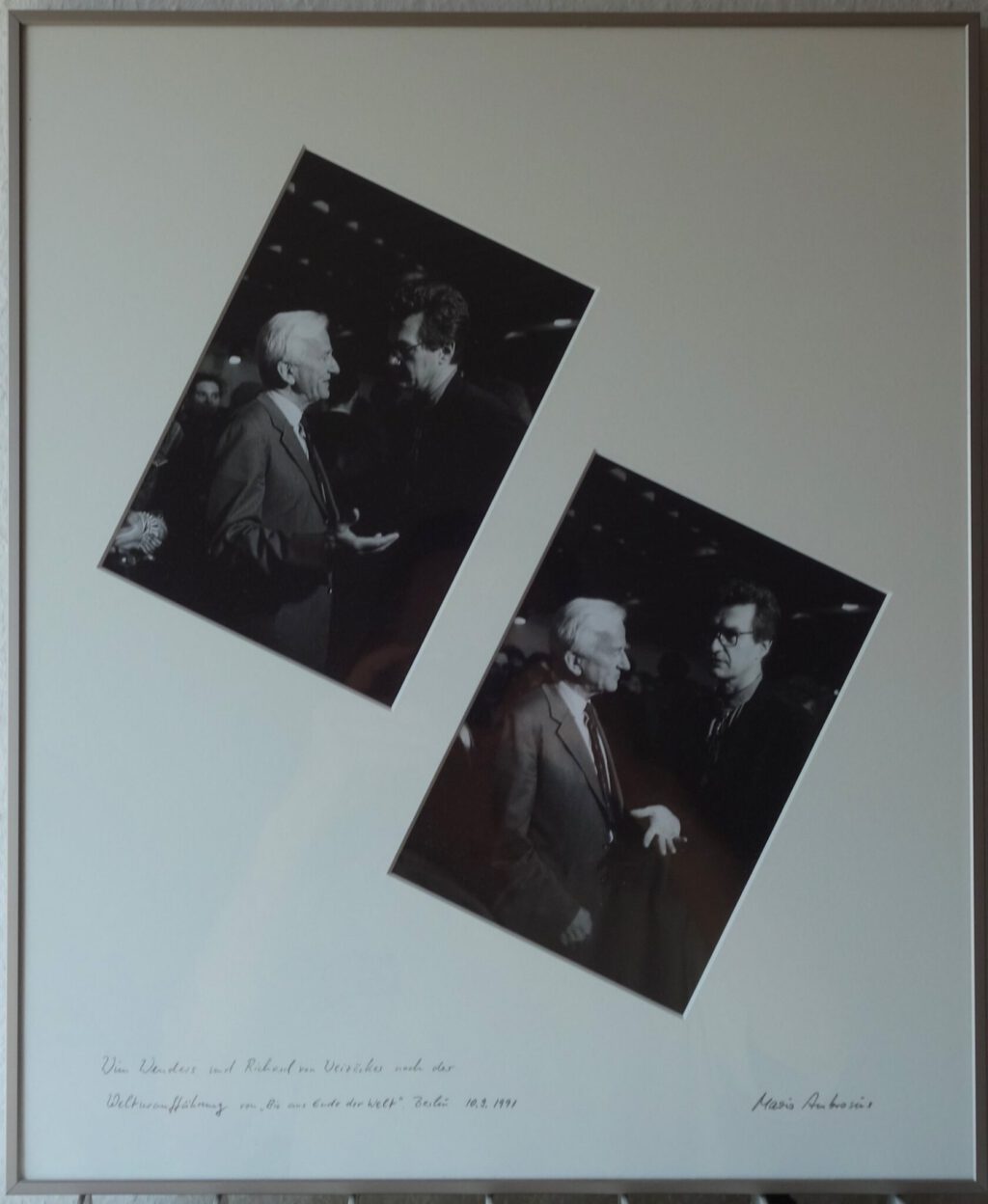
Wim created for the 8 May 2025 a short film about Reims, with the title: “The Keys to Freedom”
Quote: “To mark the 80th anniversary of the end of the Second World War, award-winning director Wim Wenders (Wings of desire, Paris-Texas, Perfect Days, etc.) has shot a short film that takes us to the most secret place in Europe at that time: a map room in a school in Reims, France, which served as a war room for the Allies. On May 7, 1945, Nazi Germany surrendered there and the world war ended.”
Myself went to Reims in the context and research of (War Criminal) French painter Léonard Tsuguharu Foujita.
藤田嗣治・Léonard Foujitaの作品との出会い Encountering the works by Léonard Tsuguharu Foujita
https://art-culture.world/articles/foujita-tsuguharu-leonard-tsuguharu-foujita-kimiyo-藤田嗣治/
To understand the intellectual context regarding the lack of a history/war museum, it’s worth analyzing the comparison between the legacy of Léonard Foujita and the Japanese population.
Foujita, dead since 1968, continues to attract attention in Japan, despite being a War Criminal.
The media coverage of Foujita is symptomatic of the deliberately selective perception of Japanese art critics and journalists. Their cognitive dissonance demonstrates arrogance and a lack of constructive self-criticism.
Foujita was a closet fascist and, unlike Picasso, supported the totalitarian Roma-Berlin-Tokyo Axis (ROBERTO). Foujita’s friend Robert Desnos, who cared for Foujita’s wife Youki (Lucie Badoud) in Paris and fought in the Resistance, died in the Theresienstadt concentration camp.
https://en.wikipedia.org/wiki/Robert_Desnos
https://ja.wikipedia.org/wiki/ロベール・デスノス
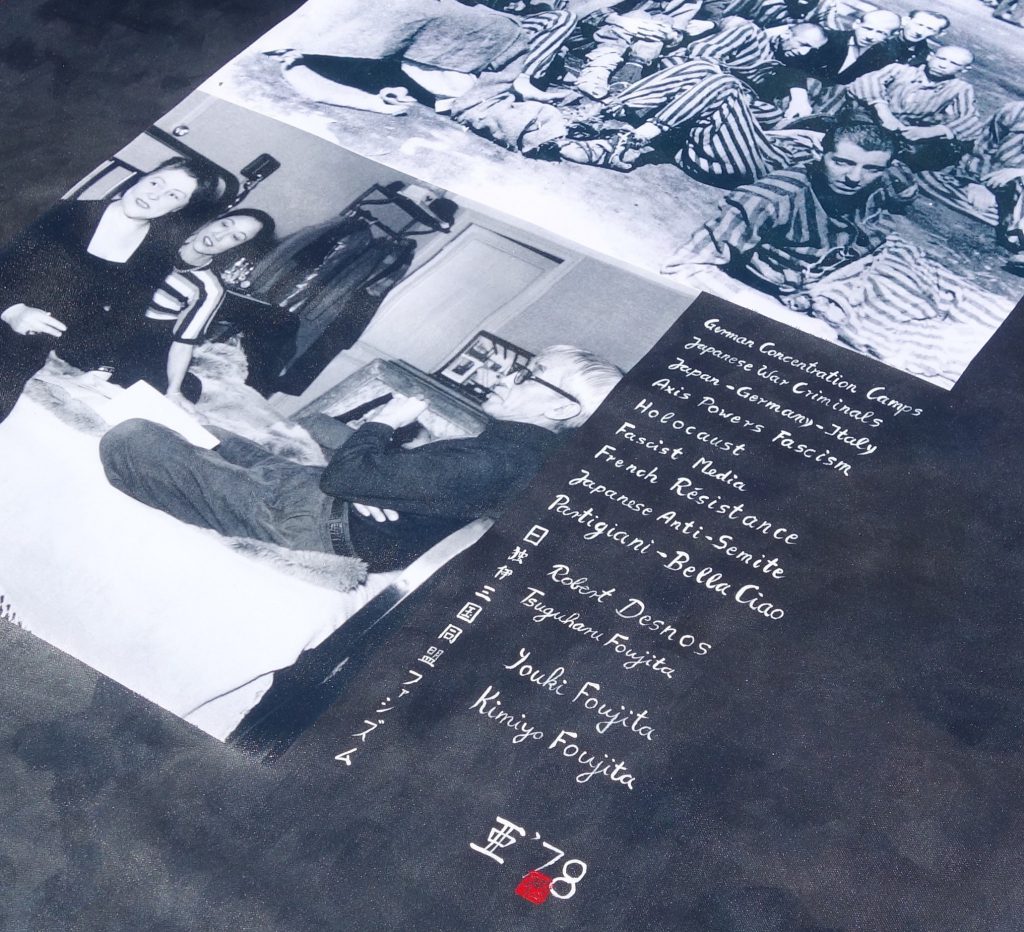
Foujita never helped Desnos; on the contrary, he became an anti-Semite. Foujita never joined a resistance movement in France or Japan; a resistance movement like the White Rose was out of the question for him.
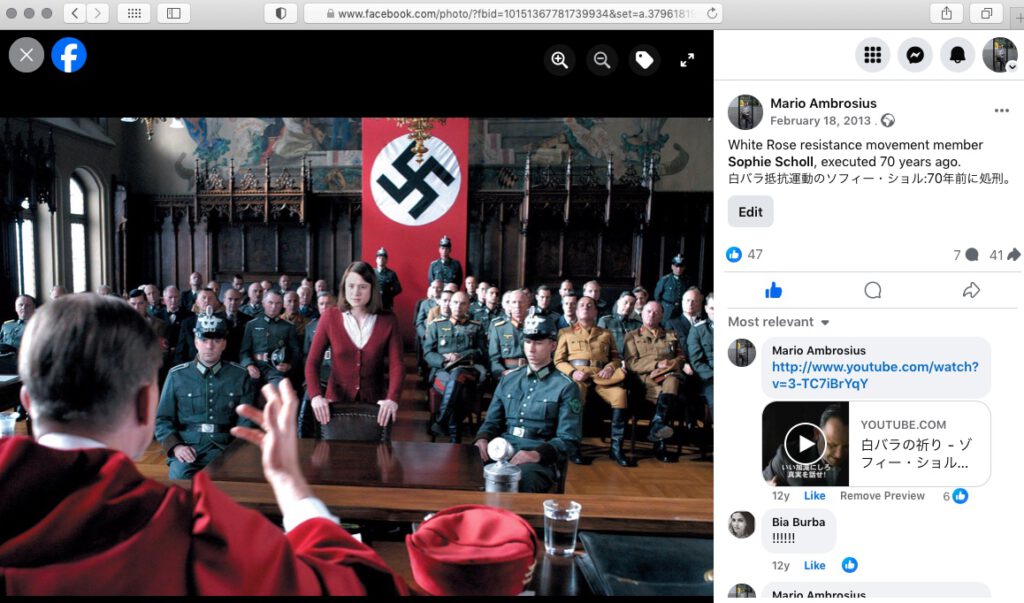
Without hesitation, he pro-actively, vehemently supported the Japanese fascist government during the war.
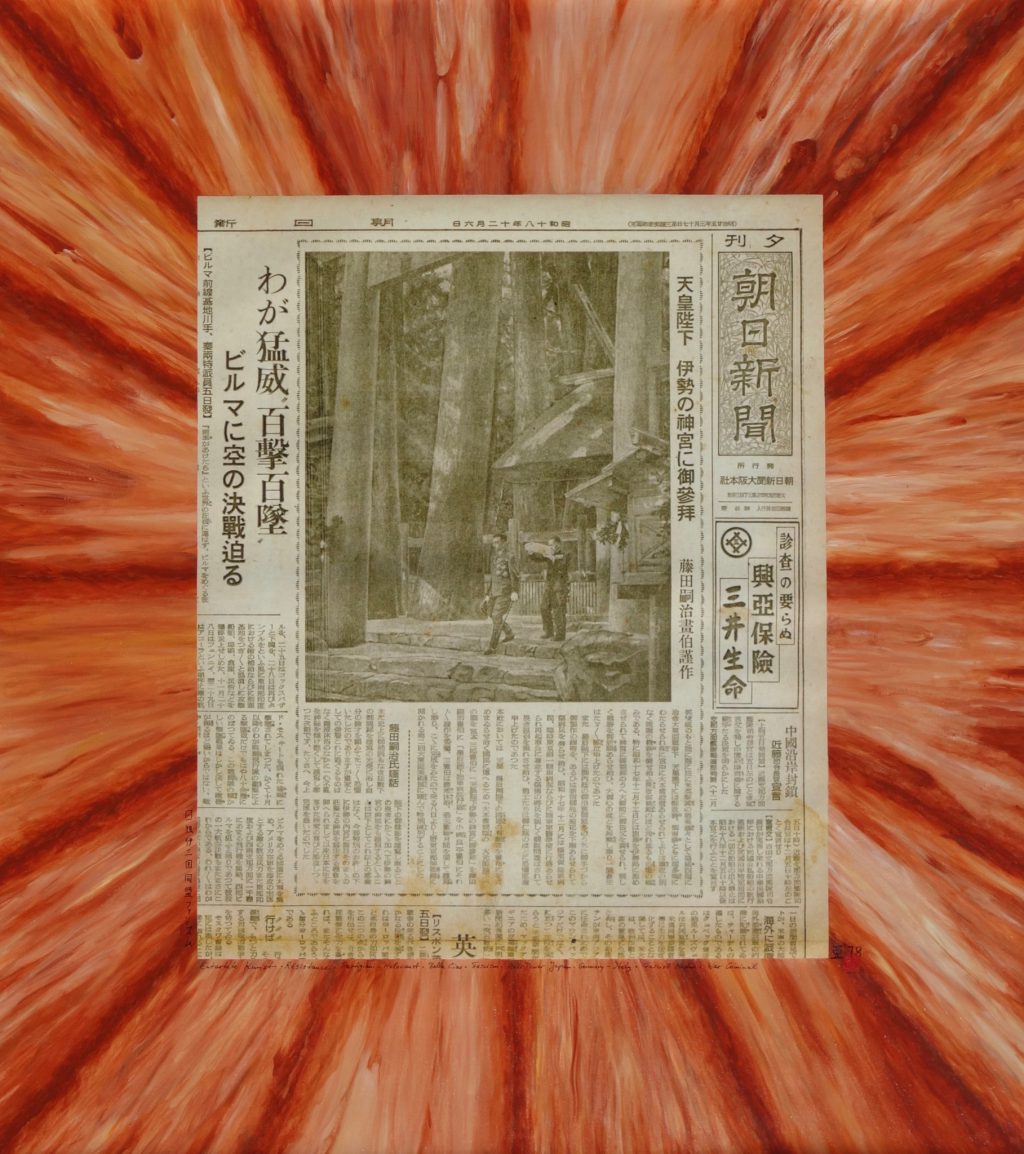
Therefore Léonard Tsuguharu Foujita is a War Criminal.
Refer to:
2021年5月8日の認知症予防。「ロベール・デスノス、藤田嗣治、藤田ユキ、藤田君代。レジスタンス 対 戦争犯罪人。」
Dementia Prevention on 8th of May 2021. “Robert Desnos, Tsuguharu Foujita, Youki Foujita, Kimiyo Foujita. Résistance vs War Criminal.”
https://art-culture.world/articles/robert-desnos-tsuguharu-foujita-youki-foujita-kimiyo-foujita-resistance-vs-war-criminal/
新作 「ロベール・デスノス、藤田嗣治、藤田ユキ、藤田君代。レジスタンス 対 戦争犯罪人。」
New Work “Robert Desnos, Tsuguharu Foujita, Youki Foujita, Kimiyo Foujita. Résistance vs War Criminal.”
https://art-culture.world/articles/tsuguharu-foujita-youki-foujita-kimiyo-foujita-robert-desnos-resistance-vs-war-criminal/
新作「日独伊三国同盟ファシズム, Entartete Kunst, Résistance, Partigiani, Holocaust, Bella Ciao, Fascism, Axis Power Japan-Germany-Italy, Fascist Media, War Criminal」
New Work “日独伊三国同盟ファシズム, Entartete Kunst, Résistance, Partigiani, Holocaust, Bella Ciao, Fascism, Axis Power Japan-Germany-Italy, Fascist Media, War Criminal”
https://art-culture.world/articles/new-work-日独伊三国同盟ファシズム-entartete-kunst-résistance-partigiani-holocaust-bella-ciao-fascism-ax/
新作 「Bella Ciao」 New Work “Bella Ciao”
https://art-culture.world/articles/new-work-bella-ciao/
日独伊三国同盟ファシズム:横山大観とベニート・ムッソリーニ
Fascism Axis Japan-Germany-Italy: Nihonga Painter YOKOYAMA Taikan and Benito Mussolini
https://art-culture.world/articles/fascism-axis-japan-germany-italy-nihonga-painter-taikan-yokoyama-and-benito-mussolini/
新作「横山大観・ピカソ・オットー・ディクス」
New Work “YOKOYAMA Taikan, PICASSO, Otto DIX”
https://art-culture.world/articles/new-work-yokoyama-taikan-picasso-otto-dix/
退廃芸術のアーティストたちのドイツ記念切手 (過去サイト・アーカイブの再投稿、2017年5月13日)
Deutsche Post Gedenk-Briefmarken zu Künstlerinnen und Künstler der “Entarteten Kunst” (repost from the archive, 2017/5/13)
https://art-culture.world/articles/entartete-kunst-退廃芸術-アーティスト-ドイツ記念切手/
実際の醜聞として「IOC 東京2020」と 戦犯・ナチス象徴レニ・リーフェンシュタール+アドルフ・ヒトラー
Actual Scandal Concerning The “IOC Tokyo 2020” And War Criminal, Nazi Symbol Leni Riefenstahl + Adolf Hitler
https://art-culture.world/articles/leni-riefenstahl-レニ・リーフェンシュタール/
Learning from history.
Learning from history?
How can that work if you’re too eager to read books, learn, write, or put your own thoughts into words?
If you cannot develop independent, self-reliant thinking?
Independent analysis demands various sources of information. If possible in different languages. A crucial problem arises when a political agenda is behind the professional historians of a history or war museum, making a true, objective exhibition impossible. Fact is, in most countries where a history or war museum exists, an autonomous, objective, self-reflective, critical exhibition is lacking.
There exist numerous, eclectic ways to remember history and communicate/mediate it to the population and foreign tourists and visitors. In this particular context, over the past two days, the German media has reported in depth on the following two people:
Gunter Demnig and Margot Friedländer, who died yesterday at the age of 103.
Indeed, learning from history, as a country of perpetrators.
Quote from wikipedia:
Demnig’s best known work is what he calls Stolpersteine. Stolperstein (in the singular) is the German word for “stumbling block”. Demnig’s Stolpersteine are small, cobblestone-sized brass memorials for the victims of National Socialism. Set into the pavement of sidewalks in front of the buildings where Nazi victims once lived or worked, they call attention both to the individual victim and the scope of the Nazi war crimes. By 2017, about 61,000 Stolpersteine had been laid in 21 countries in Europe,[3] making the project the world’s largest memorial.
https://en.wikipedia.org/wiki/Gunter_Demnig
https://en.wikipedia.org/wiki/Stolperstein
ストルパーシュタイン
https://ja.wikipedia.org/wiki/ストルパーシュタイン
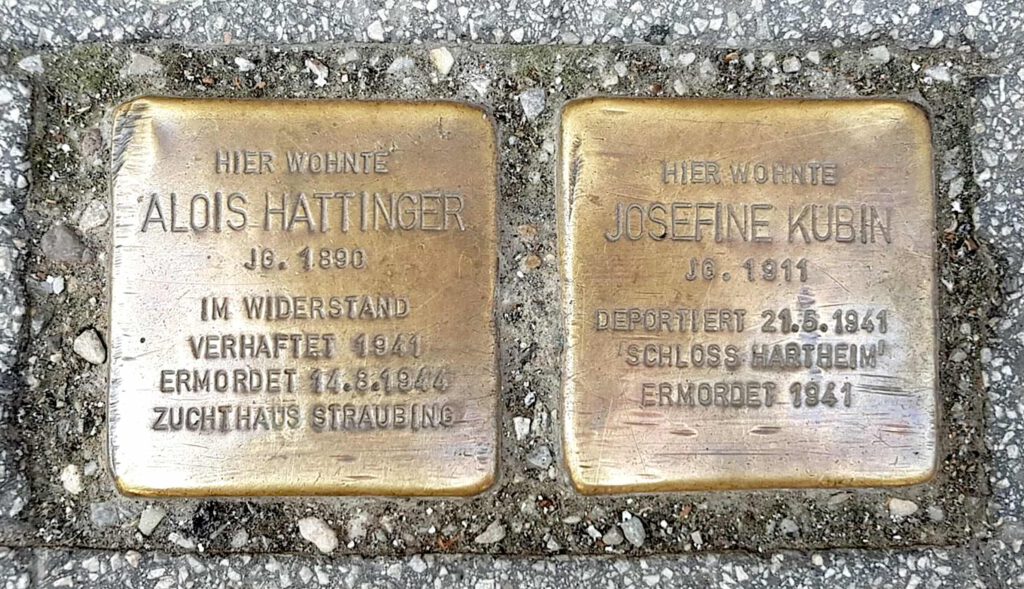
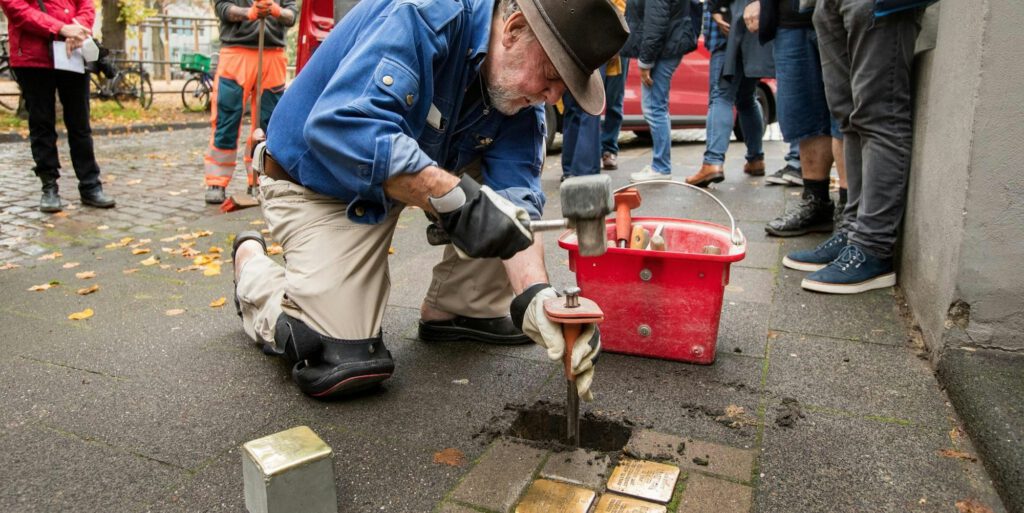
Quote from wikipedia:
Return to Berlin
Friedländer at the International Holocaust Remembrance Day 2022
In 2010, she decided to return to Berlin permanently, aged 88, and began to give frequent talks about her experiences of the Holocaust, particularly in German schools.[1][10] She decided to make it her mission to tell young people about her experiences in Nazi Germany and explained, “My brother did not have a chance. But the young people today do”.[4] Her German citizenship was restored and she settled in the capital.[2]
https://en.wikipedia.org/wiki/Margot_Friedländer
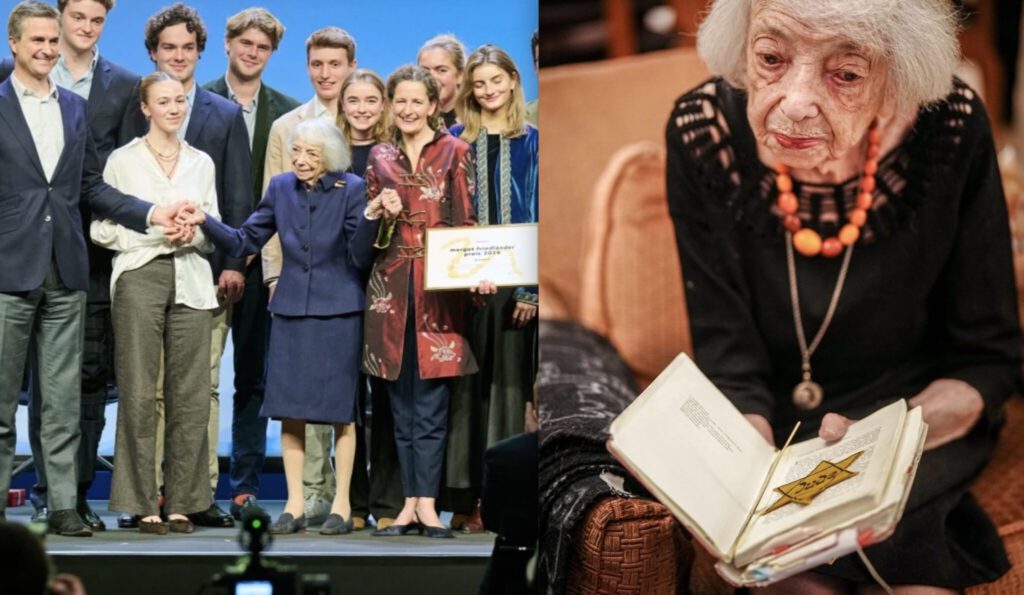
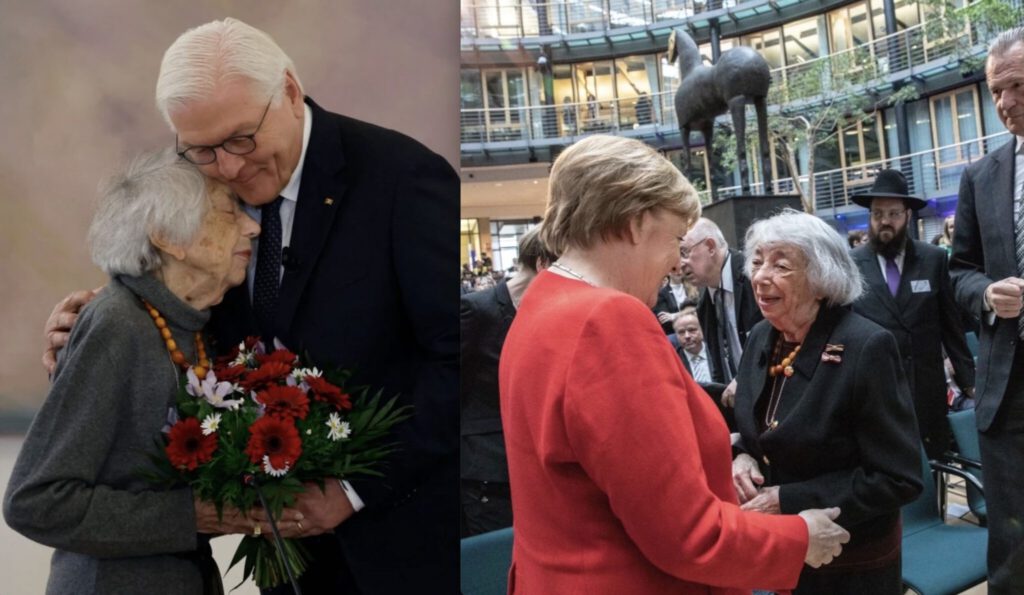
I miss a similar, widespread, and self-evident war-related press reception in Japan.
Let’s return to the problem of conveying true history. The current dispute yesterday between the Taiwanese president and the Chinese president (see above) is an example of how historiography (including history textbooks) is manipulated, distorted, and falsified via political agendas.
There are several contemporary Japanese artists who unthinkingly exhibit their works in China. I oppose this. I will never allow my works to be exhibited in China.
After the end of the war in Japan, quite a few Japanese, as well as Americans, wanted to see the Emperor dead. Hitler had committed suicide, and Mussolini was hanged and displayed to the public in Milan with his mistress.
What many forget is that the Japanese Emperor was also supposed to be hanged and displayed to the Japanese public.
Polish/German history textbooks are written jointly with Polish and German historians. Korean, Chinese, and Japanese historians are unable to achieve such cooperation.
There’s a much-acclaimed and praised museum of German history in Berlin. Many Japanese tourists are amazed and wish there was a similar museum in Tokyo.
Deutsches Historisches Museum
https://www.dhm.de/en/
German Historical Museum
https://en.wikipedia.org/wiki/German_Historical_Museum
ON DISPLAYING VIOLENCE: FIRST EXHIBITIONS ON THE NAZI OCCUPATION IN EUROPE, 1945–1948
From 24 May 2025 in the Deutsches Historisches Museum
In cooperation with the Documentation Centre “German Occupation of Europe in the Second World War”
https://www.dhm.de/en/press/press-release/on-displaying-violence-first-exhibitions-on-the-nazi-occupation-in-europe-1945-1948/
GEWALT AUSSTELLEN: ERSTE AUSSTELLUNGEN ZUR NS-BESATZUNG IN EUROPA, 1945-1948
Ab dem 24. Mai 2025 im Deutschen Historischen Museum
In Zusammenarbeit mit dem Dokumentationszentrum „Zweiter
Weltkrieg und deutsche Besatzung in Europa“
https://www.dhm.de/assets/DHM/Bilder/Ausstellungen/Gewaltherrschaft/250312_PM_Gewalt_ausstellen_Erste_Ausstellungen_zur_NS-Besatzung_in_Europa__1945-1948_DHM.pdf
DOCUMENTATION CENTRE “GERMAN OCCUPATION OF EUROPE IN THE SECOND WORLD WAR” (ZWBE)
https://www.dhm.de/en/museum/about-us/documentation-centre-german-occupation-of-europe-in-the-second-world-war/
DOKUMENTATIONSZENTRUM „ZWEITER WELTKRIEG UND DEUTSCHE BESATZUNG IN EUROPA“ (ZWBE)
https://www.dhm.de/museum/ueber-uns/dokumentationszentrum-zweiter-weltkrieg-und-deutsche-besatzung-in-europa/
There are only local museums in Japan, one-sidedly designed to play the role of victims: Okinawa Prefectural Peace Memorial Museum 沖縄県平和祈念資料館, Himeyuri Peace Memorial Museum ひめゆり平和祈念資料館, Hiroshima Peace Memorial Museum 広島平和記念資料館, Nagasaki Atomic Bomb Museum 長崎原爆資料館, Tokyo Air Raid and War Damage Center 東京大空襲・戦災資料センター.
Why doesn’t a Japanese History / War Museum exist?
Japan predominantly portrays itself as a victim of the war; the tunnel vision of the atomic bomb victims is supposed to be enough.
The Japanese population should only absorb what is acceptable, mentally comfortable.
A critical war history museum only “harms” the nationalist, Tenno-centric 天皇中心 social construct, the pride of being born Japanese.
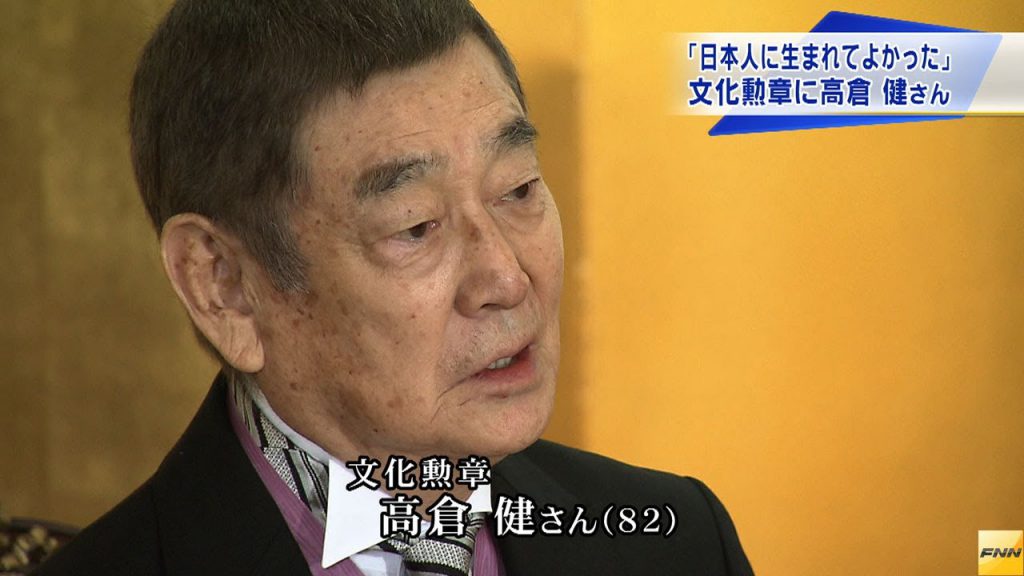
The Japanese xenophobic population should remain infantile, gullible, and feudalistic. Because… in Japan’s Machiavelli’s Reason of State the Japanese Emperor has to be the center of Japanese ethnicity.
Japanese immature (country-side) men, as part of the Generational Contract (Generationenvertrag 世代契約) will still be needed as cannon fodder in the future. Not in Japanese idiotic video games or childish Anime, but IRL.
Basel-Tokyo, May 10, 2025・令和 7年・REIWA 7
Mario A
「標本室は目の開けられないくらい・・・」731部隊の実態、元少年兵の目に焼きついた光景【報道特集】 | TBS NEWS DIG
戦争や紛争が起きる度に、子ども達が戦争に加担させられるケースがあります。先の大戦で日本の少年兵たちが細菌兵器の開発に関わっていた事実はあまり知られていません。
